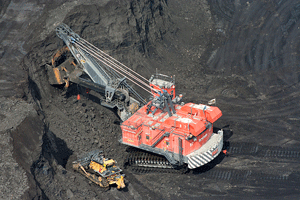
David Dodge, the Pembina Institute
An obscure executive order issued by President Lyndon B. Johnson in 1968 has given Secretary of State Hillary Clinton the power to approve or deny a massive oil pipeline between Canada’s controversial tar sands and U.S. oil refineries.
In the coming weeks, the State Department will decide whether to grant a permit for the 1,000-mile Alberta Clipper pipeline, which would be capable of carrying up to 800,000 barels per day of crude oil–or about 8 percent of net U.S. oil imports–from the tar sands in eastern Alberta to refineries on Lake Superior in Wisconsin.
Under current law–rarely invoked, given that oil imports typically arrive in the U.S. by tanker–the Secretary of State must receive all applications for the construction of “pipelines, conveyor belts, and similar facilities for the exportation and importation of petroleum.” If the Secretary finds that granting a permit “would not serve the national interest,” she can deny it.
This week, the Sierra Club will launch a campaign to pressure Clinton to oppose the project as a climate boondoggle that would lock the United States into purchasing dirty oil for decades. Mining and refining oil from the tar sands emits roughly twice as much greenhouse gas as producing traditional oil. Canada is already the U.S.’ top foreign oil supplier and is expected to provide an even larger share as the U.S. looks for a stable energy source closer to home.
The Sierra Club’s director of environmental law, Pat Gallagher, notes that the executive order provides “absolutely no guidelines or any kind of process to decide what is in the ‘national interest.'” So how to weigh energy security against climate security–and of course, personal political security–will be up to Clinton.









